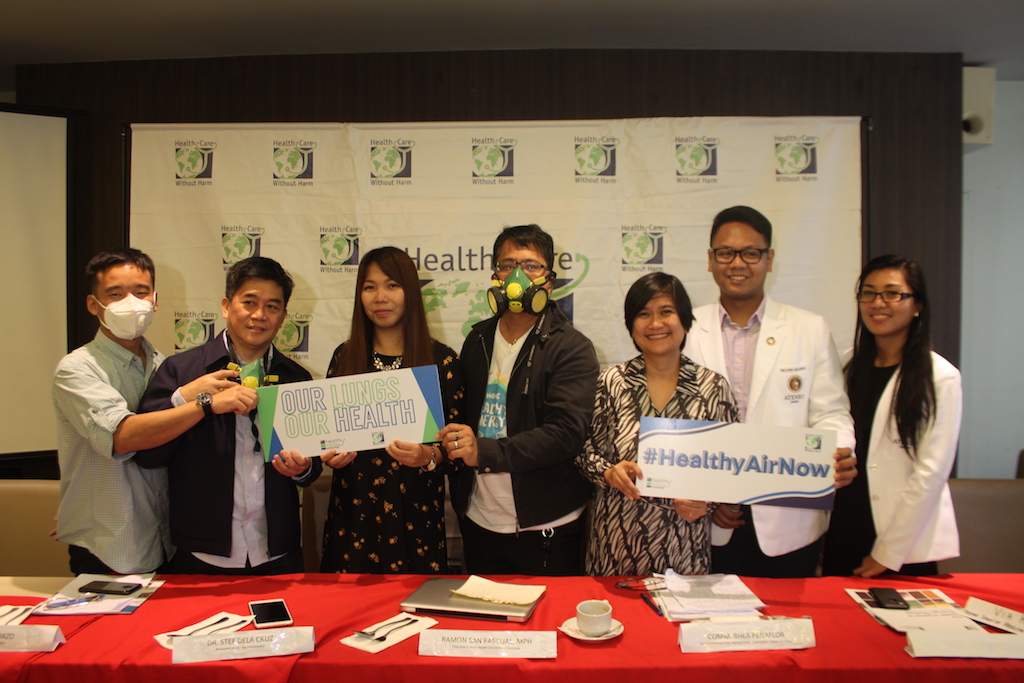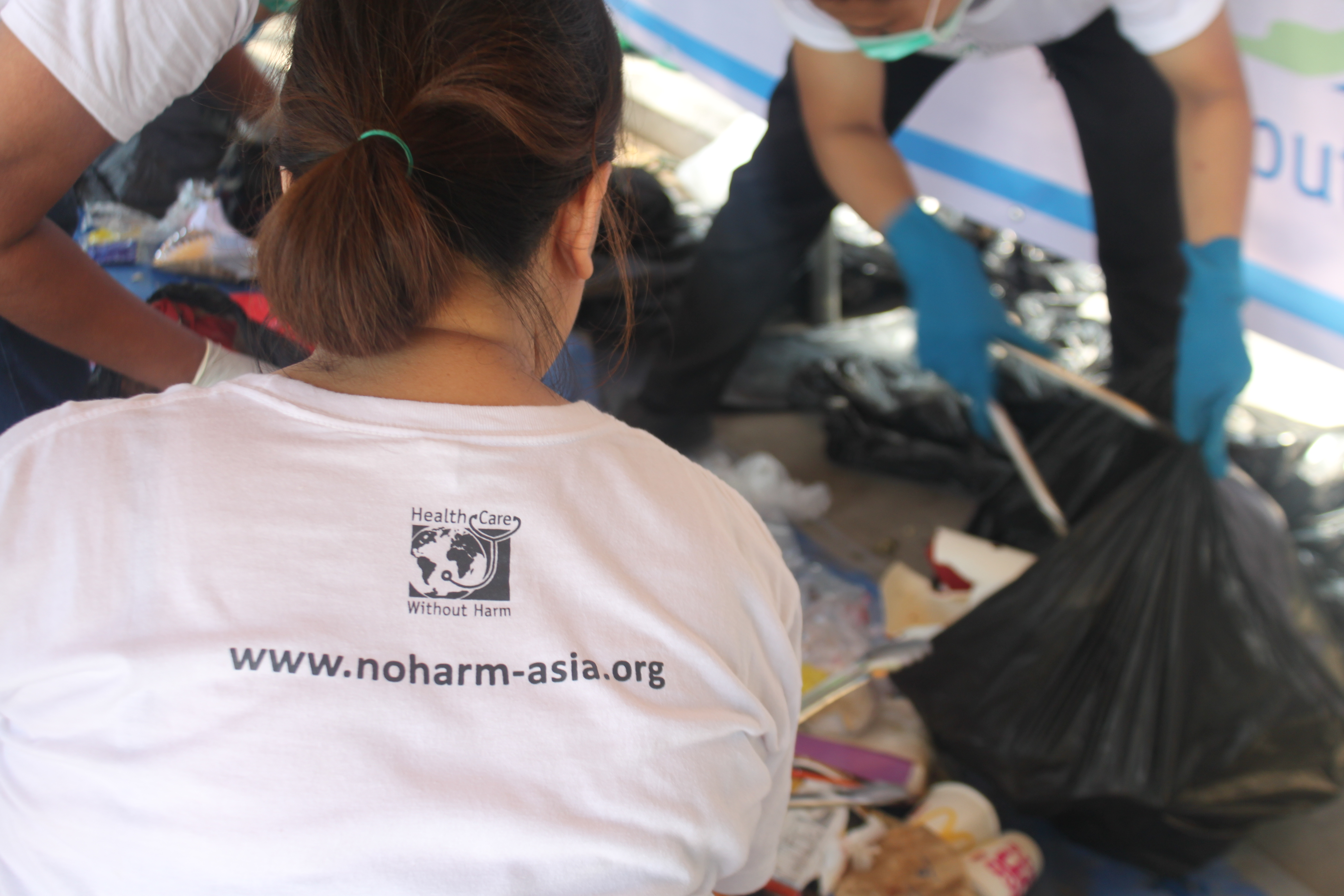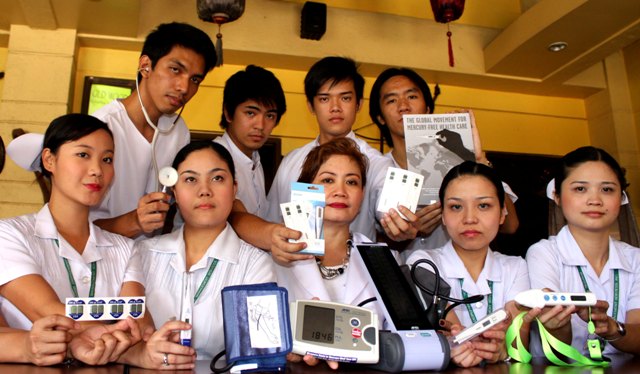HCWH-Asia
The Organization

Health Care Without Harm-Asia is part of a strong global network of hundreds of member parties. Our organization is at the center of transforming the health care sector worldwide, without compromising patient safety or care.
Health Care Without Harm was founded in 1996 after the U.S. Environmental Protection Agency identified medical waste incineration as the leading source of dioxins, one of the most potent carcinogens. In response to this grave threat, 28 organizations came together in Bolinas, California to form the Health Care Without Harm coalition.
We’ve grown into a broad-based network with representatives from various fronts. Our coalition is comprised of hospitals and health care systems; medical professionals; community groups; health-affected constituencies; labor unions; environmental and environmental health organizations; and religious groups.
HCWH-Asia took root in 2003, committing to improve health care systems in the region. The group’s first project in the area was the Philippine Measles Eradication Campaign (PMEC) in 2004, which demonstrated the possibility of conducting a major immunization campaign without incinerating the resulting waste. The project set a global benchmark that was cited in international conferences.
In 2006, the issue of mercury in medical and science equipment came into focus. The organization held the first mercury conference in Southeast Asia. The conference, along with the mercury-related accident in St. Andrew’s School in Manila, solidified popular opinion towards the toxic substance.
HCWH maintains regional offices in the United States, Belgium, Argentina and the Philippines, and maintains strategic partnerships with Australia, China, India, Nepal, South Africa, and Tanzania.
Vision

Health care mobilizes its ethical, economic and political influence to create an ecologically sustainable, equitable and healthy world.
Mission

Transform health care worldwide so that it reduces its environmental footprint, becomes a community anchor for sustainability and a leader in the global movement for environmental health and justice.
Our Model
Research and Innovation: We identify and pilot opportunities for health care to implement innovative, economical, science-based solutions to environmental health problems.
Implementation and Capacity Building: We educate, build implementation tools, train health care professionals and scale-up solutions across our networks, the health sector and in the communities it serves.
Policy and Market Changes: We aggregate the influence and purchasing power of hospitals, health systems, health professionals and organizations to drive the marketplace toward sustainability and advocate for policies that will create worldwide change.
Overarching Goals
1. Protect Public Health from Climate Change: Reduce health care’s carbon footprint, foster climate resilient health systems, mobilize the health sector to address climate change as a public health issue, and advocate for solutions that accelerate a transition to clean, renewable energy.
2. Transform the Supply Chain: Establish and globalize procurement criteria and leverage health care’s purchasing power to drive policies and markets for ethically produced, healthy, sustainable products and services.
3. Build Leadership for Environmental Health: Inspire, mobilize and support health care’s leadership to promote environmental sustainability, human rights, and the right to health in order to achieve large-scale transformational change.
Program Goals
Buildings – Promote green and healthy health care facility design, construction, renovation and operations in order to minimize environmental impacts and foster restorative and sustainable healing environments.
Chemicals – Work with health care to eliminate harmful chemicals or substitute them with safer alternatives; minimize chemical exposure of patients, health care workers and communities; drive the design, use and safe disposal of safer materials and chemicals.
Energy – Accelerate the implementation of energy efficiency while promoting clean, renewable energy in health care, thereby mobilizing the sector as a leader for a healthy energy future for all.
Food – Collaborate with health care facilities to promote, purchase and serve sustainably grown, healthy food so as to support the development of sustainable food systems that improve environmental health and address the upstream social and economic determinants of non-communicable diseases.
Pharmaceuticals – Support the safe production, management and disposal of pharmaceuticals, reducing their environmental and health impact throughout the entire life cycle and fostering innovations for green products.
Transportation –-Promote transportation strategies for patients, their families and staff that support healthier local and regional transport systems, while reducing health care’s contribution to air pollution, climate change and the burden of disease.
Waste – Promote zero waste policies, reduce the volume and toxicity of waste produced by the health care sector, and implement safe, sustainable disposal options as alternatives to incineration.
Water –Develop conservation, recycling and treatment actions to reduce hospital water consumption and wastewater pollution; promote public health by advocating for policies and health care actions that assure community access to a safe water supply.
